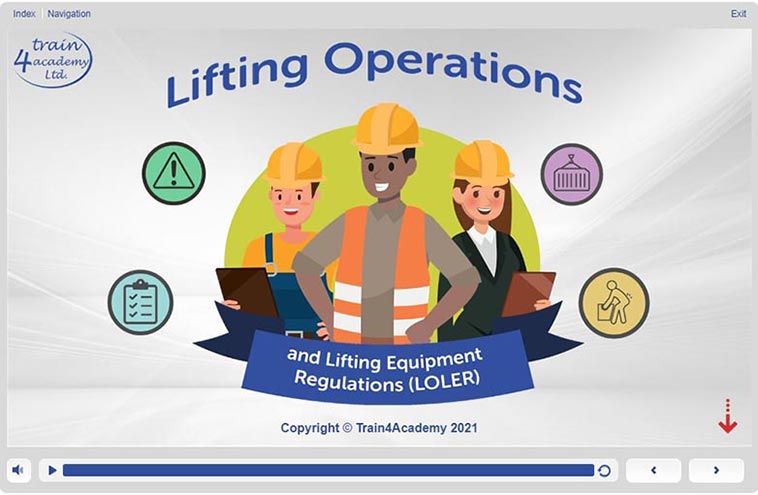LOLER Regulations Explained
18/03/2020
Lifting Operations and Lifting Equipment Regulations (LOLER) is a piece of legislation designed to help business owners and employees who work in an environment where lifting equipment is used, for example, warehouses and construction sites. Compliance with LOLER will help ensure that UK businesses are working within the law and that employees are operating equipment safely and in line with relevant LOLER training.

Most work activities carry a certain amount of risk. However, those carrying out lifting operations in their work carry a much higher risk of injury if the tasks are not suitably risk assessed and carried out with the correct equipment. This article answers some frequently asked questions to help you understand LOLER, and give you a good basic level of knowledge and understanding about when LOLER applies and its importance in workplaces.

What do the regulations cover?
What do the regulations cover?
- Identifying risks
- Selecting strong and stable equipment appropriate for the task
- Ensuring tasks are carried out in suitable locations
- Regular checks, inspections and routine maintenance should be carried out by well trained, competent people
- Recording safety inspections and keeping the records to show the company's conformance of the regulations
The regulations apply to everyone involved in the use of lifting equipment in operations on business premises.

Legal responsibilities
The HSE states that:
These Regulations place duties on people and companies who own, operate or have control over lifting equipment. This includes all businesses and organisations whose employees use lifting equipment, whether owned by them or not. In most cases, lifting equipment is also work equipment so the Provision and Use of Work Equipment Regulations (PUWER) will also apply (including inspection and maintenance). All lifting operations involving lifting equipment must be properly planned by a competent person, appropriately supervised and carried out in a safe manner.
Source: https://www.hse.gov.uk/work-equipment-machinery/loler.htm
What if the regulations are not followed?
All health and safety legislation is part of the UK law system, its enforced by the Health and Safety Executive and Local Authority, and as such, they must be followed to ensure compliance and keep employees, visitors and members of the public safe. Should a lack of compliance be identified, then penalties can result, which may be substantial fines, enforcement action or even imprisonment.
What is a lifting operation?
Regulation 8(2) of LOLER defines a lifting operation as '...an operation concerned with the lifting or lowering of a load'. The 'load' could be an item, or it could refer to a person.
What lifting equipment does it cover?
Lifting equipment covers any equipment used in the workplace for lowering and lifting loads, such as:
- Patient hoists
- Vehicle lifts
- Overhead cranes
It also includes associated accessories such as hooks, chains and slings that fix to the equipment.

What should a LOLER Inspection checklist include?
- Equipment to be used
- How the equipment is to be used
- Organising the task
- Who will be involved
- Positioning and installing the equipment
- Storage
- Marking lifting equipment
- Equipment for lifting people
- Attaching and securing loads
- The suitability of the equipment
Who should carry out a LOLER inspection?
LOLER inspections must be carried out by a competent person. The LOLER Approved Code of Practice state that:
You should ensure that the person carrying out a thorough examination has such appropriate practical and theoretical knowledge and experience of the lifting equipment to be thoroughly examined. This will enable them to detect defects or weaknesses and to assess their importance in relation to the safety and continued use of the lifting equipment.
These regulations are supported by the HSE's Approved Code of Practice (ACOP) - ('Lifting equipment at work - A brief guide'), which is a free guidance booklet available from the following link: https://www.hse.gov.uk/pubns/indg290.htm
For more in-depth information relating to PUWER, visit the HSE website: https://www.hse.gov.uk/work-equipment-machinery/loler.htm
Lifting Operations and Lifting Equipment Regulations (LOLER) Training
- Work towards compliance with UK Health and Safety legislation
- Accredited by CPD
- Instant certificate
